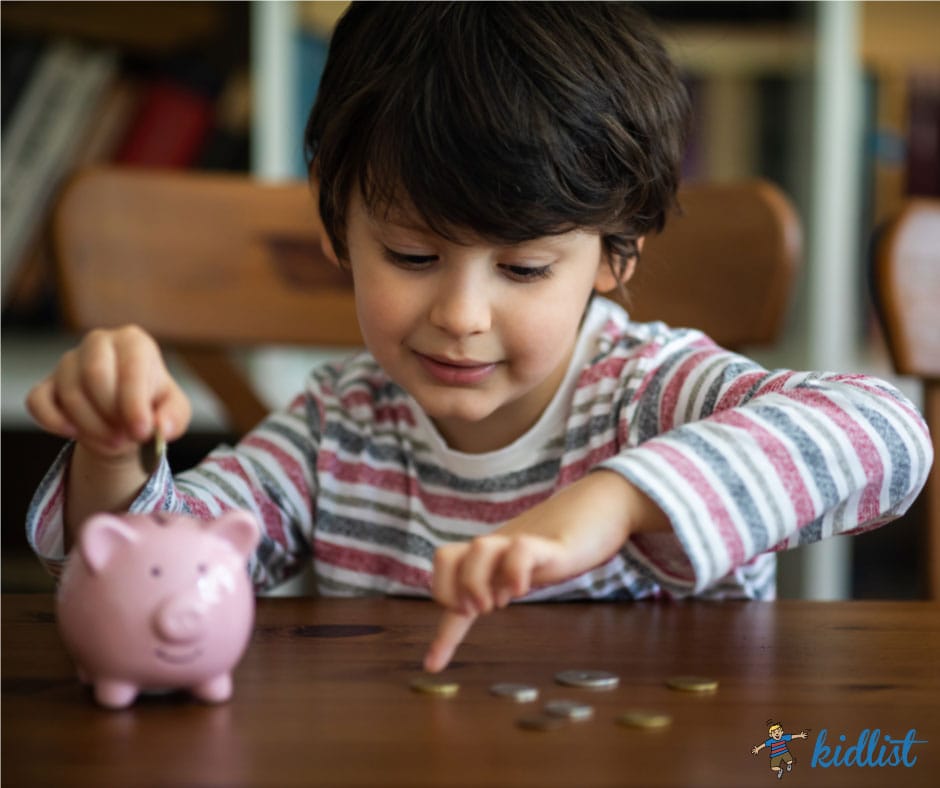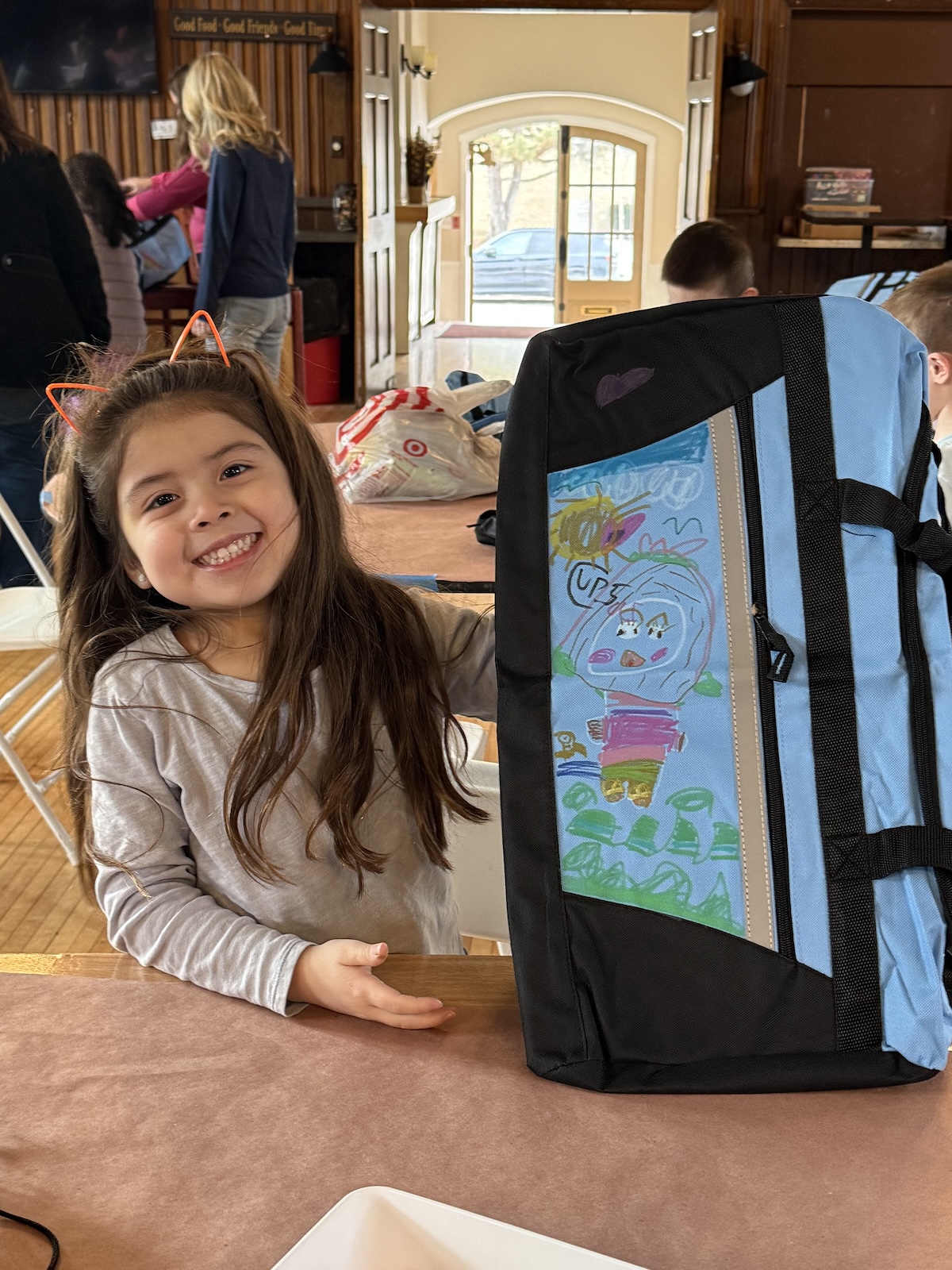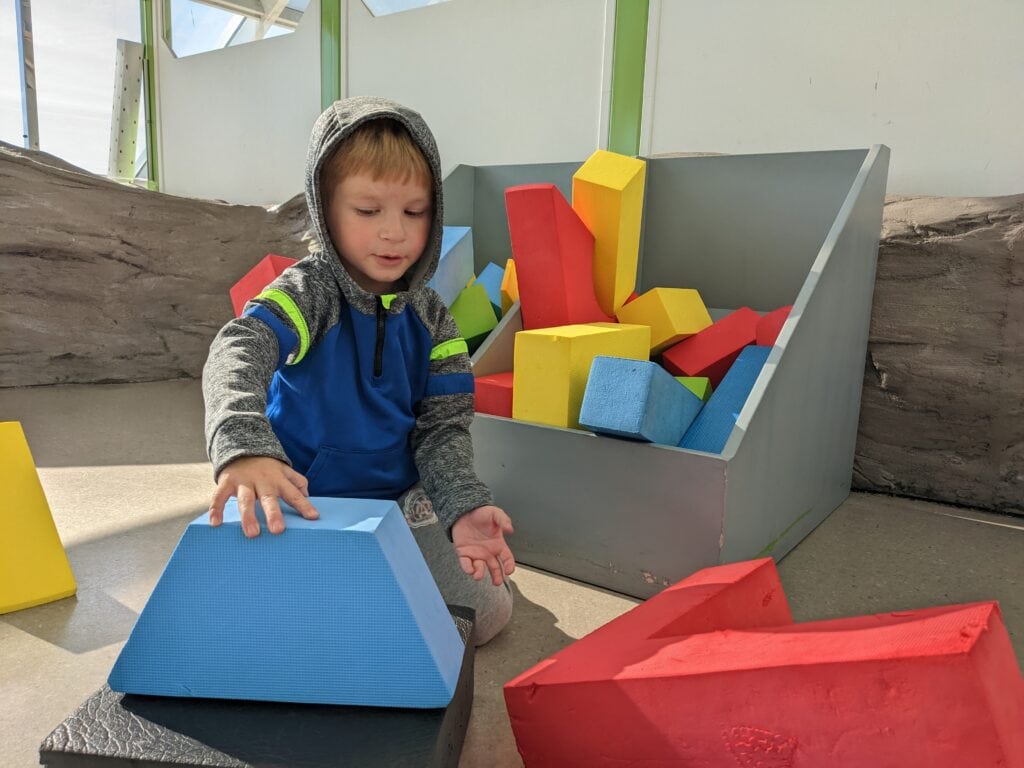Teaching young children about money is not always something we think about, but having a healthy view of money is important! How early should we start talking to our kids about money? What should we say? Are there ways that are more effective than others?
Jason Dobrzynski, CFP®, CMFC® , Maralynn Kearney, MBA, and Lori Galbraith of Corsalus Financial join us as a guest contributors to give us valuable insight about how and when to talk to our kids about money. We are honored that they offered to share their wisdom and hope you find it as helpful as we do! Feel free to reach out to them with any questions or concerns. They would love to meet with you to discuss your family’s goals.

Although we want our children to be financially aware, it’s not always easy know how much we should involve them in our day to day finances. Knowing how soon to begin talking to our kids about money and what aspects about saving and spending to discuss can be tricky. However, giving your child the responsibility to handle money can empower them to problem solve and look at situations critically.
Thankfully as your children mature, you will have many opportunities to teach them about good financial management, from kindergarten to adulthood. We’ve found some great resources and activities that will help make your talks about saving and spending fun, and give your children confidence and independence to manage their money as they grow.
Early Years
STEP 1
Shop with your young children and show them how to compare items for price and value. Look at the cost of every-day groceries, such as milk, eggs, bread, or macaroni and cheese, or compare the cost of toys.
STEP 2
Give an allowance. Giving children an allowance can provide an important first step towards financial responsibility. When should you begin giving an allowance? Should there be any strings attached? It’s an individual decision. As for when to begin giving an allowance, it’s generally recommended once children are in school.

Activity: Coupon Champion
Bringing your child to the store is a great way to start discussing money, and there’s plenty for them to do to help you between choosing items and keeping track of your list. Consider printing out a shopping list consisting of pictures or frequently needed items (cheese, apples, bread) and laminate it so that their toddler can cross out the items with a dry erase marker. Or give your child a small clipboard to hold a list and coupons for items to check off. Letting your children help you shop is an empowering activity that will keep them engaged and start realizing the value and cost of frequently used items.
Activity: Lemonade Stands and More!
Playing store, lemonade stand or any other games where your child is interacting with buying or selling can be a fun way to introduce money concepts at a young age. This is a great preface to money discussions, and it can be carried out throughout childhood and tailored to any age. Discussing the prospect of selling something for a fee and choosing to save or spend shows real life consequences that adults face daily. Hosting lemonade stands and looking for age-appropriate jobs (caring for the neighbor’s dog, reselling toys that are no longer used) gives children appropriate responsibility that is critical to developing confident and money decision-making skills.
Middle Years
STEP 3
Matching contributions. You can give your children an incentive to save by matching what they save. For example, in addition to giving them their allowance, at the end of the year, match the amount they’ve accrued throughout the year.
STEP 4
As your children begin to understand more about money and decision-making, take them through your monthly budget to show them where the money goes and to demonstrate responsible decision-making.
STEP 5
Tell stories (real anecdotes) about good and bad money management to convey your monetary values. For example, you could share with them the worst financial mistake you ever made and how you learned from that experience. Or tell them of famous athletes or other celebrities who spent everything they made and then were left with nothing.

Activity: Want Vs. Need
Think of or find 4 items or experiences and write them down (or draw a picture). Under each item, describe its worth, benefits and discuss whether it’s a want or a need. See below for an example.
Our House
Keeps us warm, dry and safe: this is a need. This is a good opportunity to discuss that although a home is a need, some homes are smaller or larger than your own. The need factor stems from being safe, dry and warm.
Food
Gives us energy, makes us healthy and strong. This is a need.
Family Pet
Provides comfort and love: this is a want. Although we love our pet, we can survive without him/her. What costs can the pet incur? Do you budget your pet and their needs in your monthly plans?
Vacations
Spending time with family, learning and exploring other parts of our country and world: this is a want. What special memories does your child have of past trips? What value and benefits do they see?
Teenagers
STEP 6
Teach teenagers how to invest. Discuss the basics with them and consider opening an investment account for them.
STEP 7
Open a college savings account for your child and contribute to it. Periodically, check the balance with the child, who can watch the money grow. Similarly, once they start working, provide a kick-start to their retirement savings by opening up and making an initial contribution to a Roth IRA.
STEP 8
Work with your older teenagers to start off on a good foot as adults by helping establish a good credit score. List them as a joint account holder on your credit card. Then when they are issued a card on their own, encourage them to always charge a small amount and pay it off each month.
Activity: Weekend Planner
At the beginning of a low-scheduled weekend, let your child know that he/she will be in charge of your activities and budgeting money for the weekend. Give them a predetermined amount of cash in an envelope that they will control (to be overseen by the parents). You may want to prepare a few suggested activities and their costs to give your child an idea of what things they can do and their cost upfront: i.e. Movies- cost for admittance and snacks; a few favorite restaurants and what the bill and tip might amount to; and nature walks or picnics for low or no-cost ideas. The Kidlist Weekend Planner is a great place for your kids to look for ideas!
Books About Money and Saving for Kids
A Chair for My Mother by Vera B. Williams
A Smart Girl’s Guide to Money by Nancy Holyoke
Alexander, Who Used to be Rich Last Sunday by Judith Viorst
Amelia Bedelia Means Business by Herman Parish
Arthur’s Funny Money by Lillian Hoban
Bunny Money by Rosemary Wells
Curious George Saves His Pennies by H. A. Rey
Fancy Nancy: Nancy Clancy Seeks a Fortune by Jane O’Connor
How to Turn $100 into $1,000,000: Earn! Save! Invest! by James McKenna, Jeannine Glista, et al.
Lemonade in Winter: A Book About Two Kids Counting Money by Emily Jenkins
Lily Learns about Wants and Needs by Lisa Bullard
One Cent, Two Cent, Three Cent, New Cent by Bonnie Worth
The Squirrel Manifesto by Ric and Jean Edelman
The Wrong Shoes: A Book About Money and Self-Esteem (Generous Kids) by Caryn Rivadeneira
About Corsalus Financial
If it’s in your heart, it should be in your plan!™
Jason Dobrzynski, CFP®, CMFC®, Maralynn Kearney, MBA, and Lori Galbraith are LPL financial advisors and investment planners. The Corsalus Financial office is located in Oak Brook at 1220 Kensington Rd Suite 200C.

We are a team who strives to make a difference in the lives of others, as well as in the community around us. We understand that ‘life is about the moments’ and we value how our families choose to spend their time. We work with people to uncover and understand the things that are closest to their hearts and that they are most passionate about. After prioritizing these important matters, we collaboratively work with families to create a financial plan to help them envision and understand how they can get there. And, we remain in their corner to help along the way. Our goals are centered around enhancing the financial lives of individuals so they are living their lives to the fullest and feeling confident about the financial decisions that they make. We not only want to celebrate the accomplishments that happen along the way in our clients’ lives, but we also take the time to recognize the ‘little things’ that go on because they sometimes matter the most.
If you have questions about a financial plan for your family or how to raise financially aware kids, please check out our website at www.corsalus.com or contact us at info@corsalus.com.
The opinions voiced in this material are for general information only and are not intended to provide specific advice or recommendations for any individual.
Securities and advisory services offered through LPL Financial, a Registered Investment Advisor, Member FINRA/SIPC














